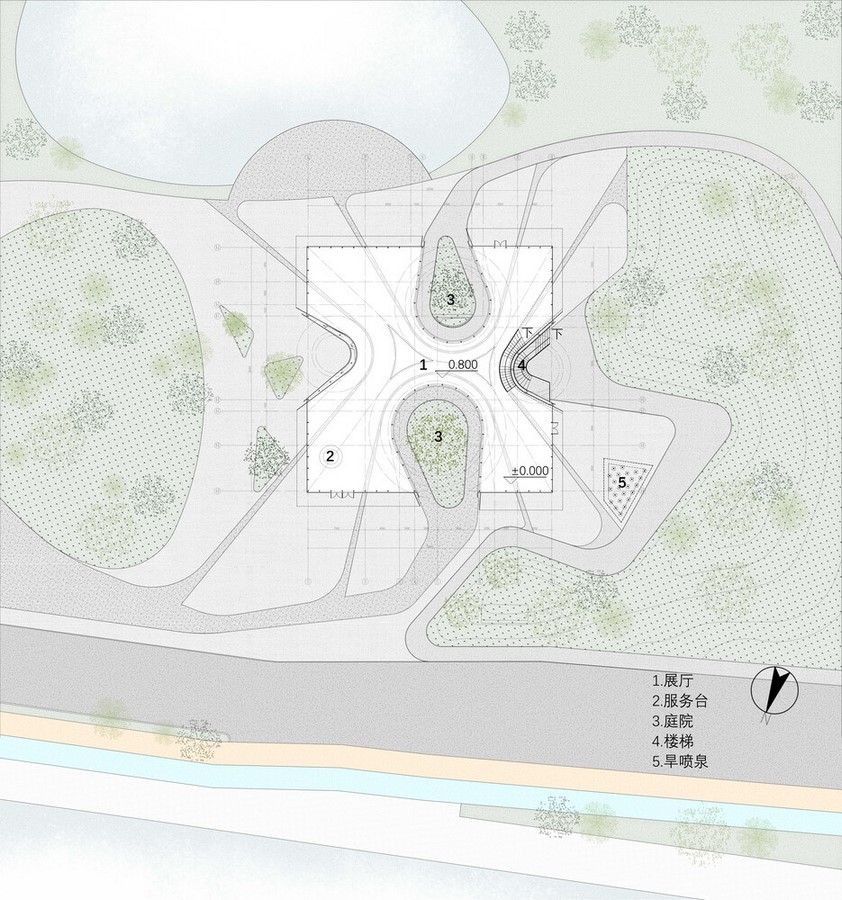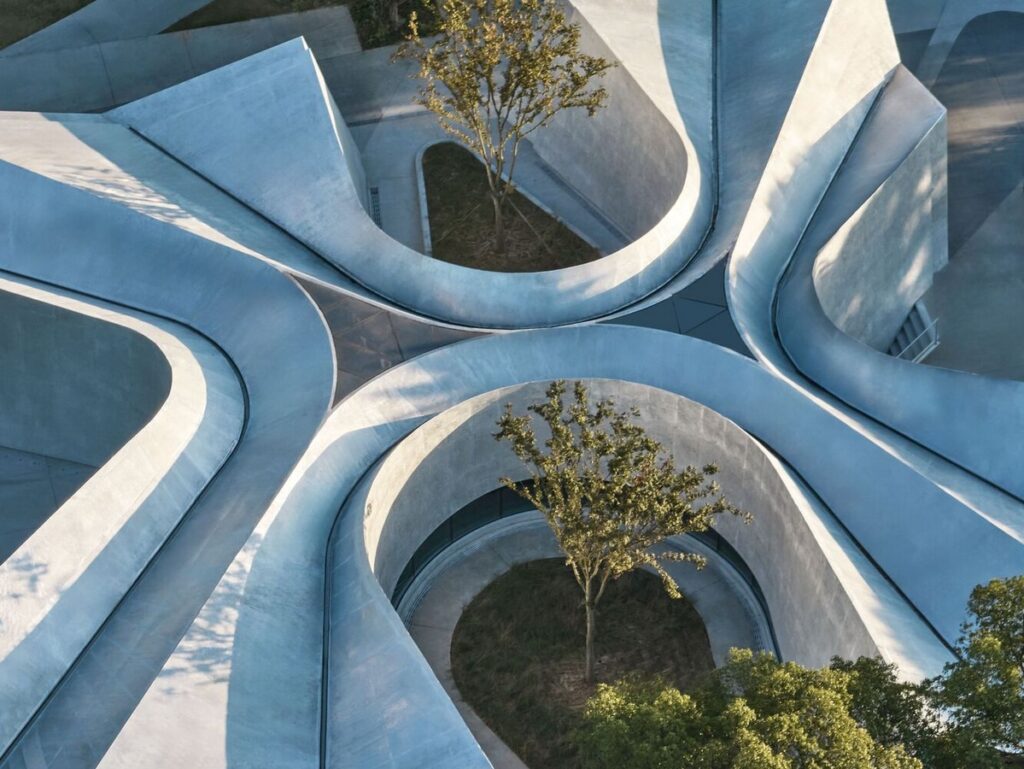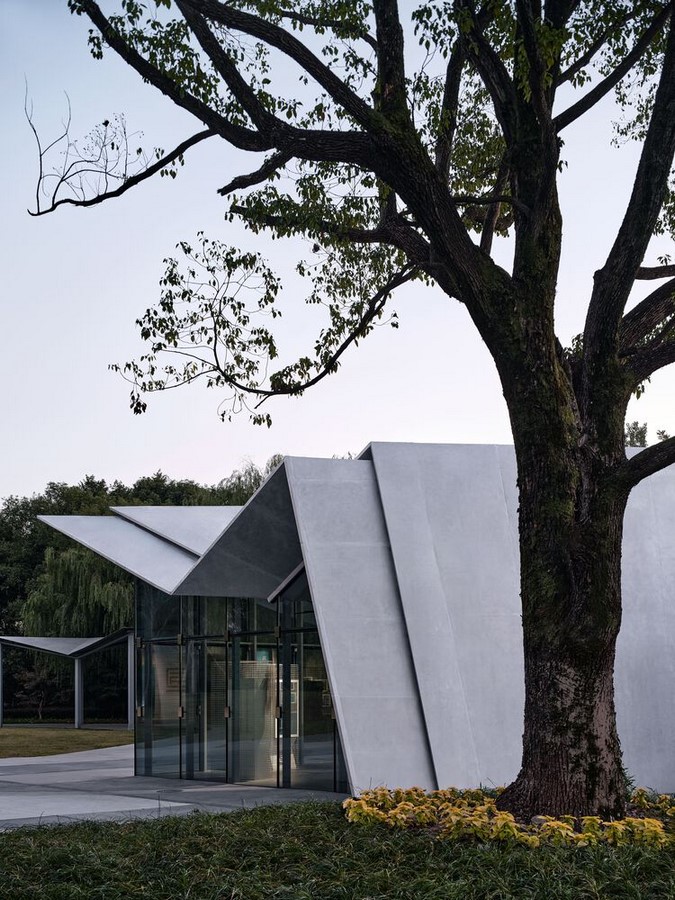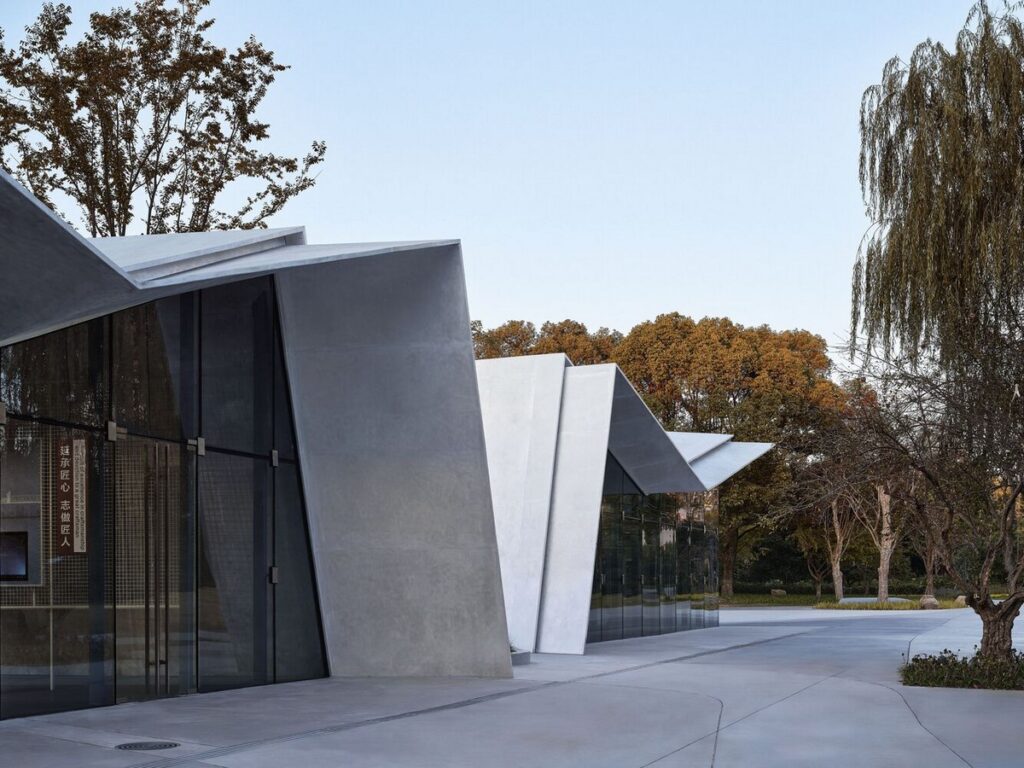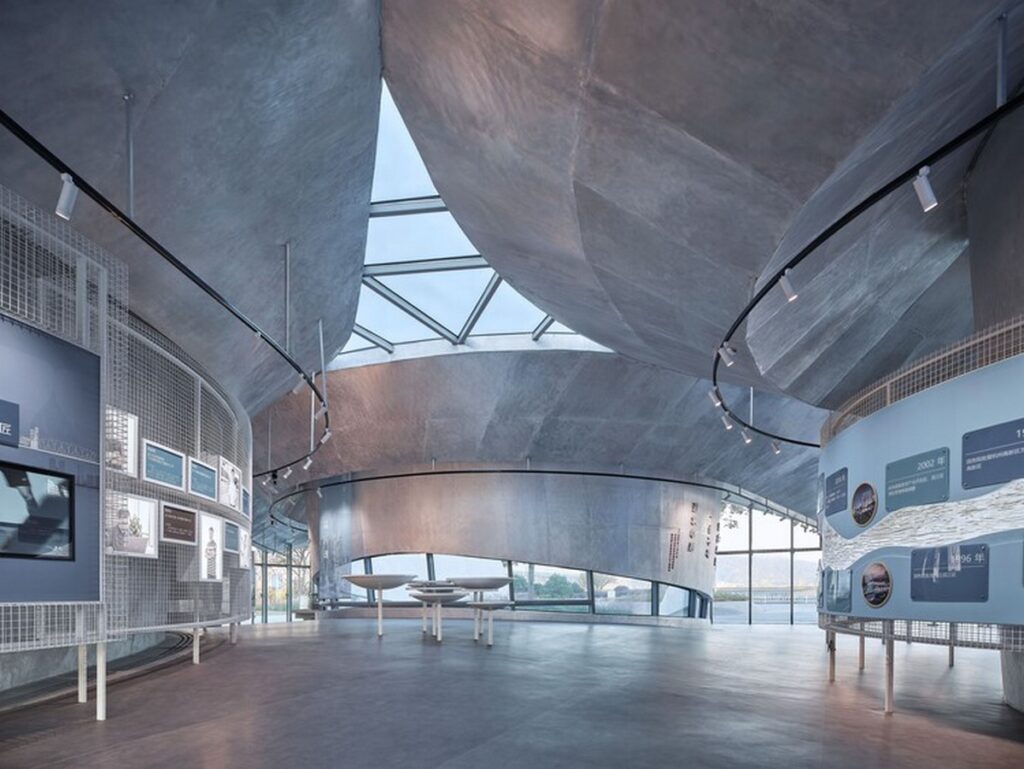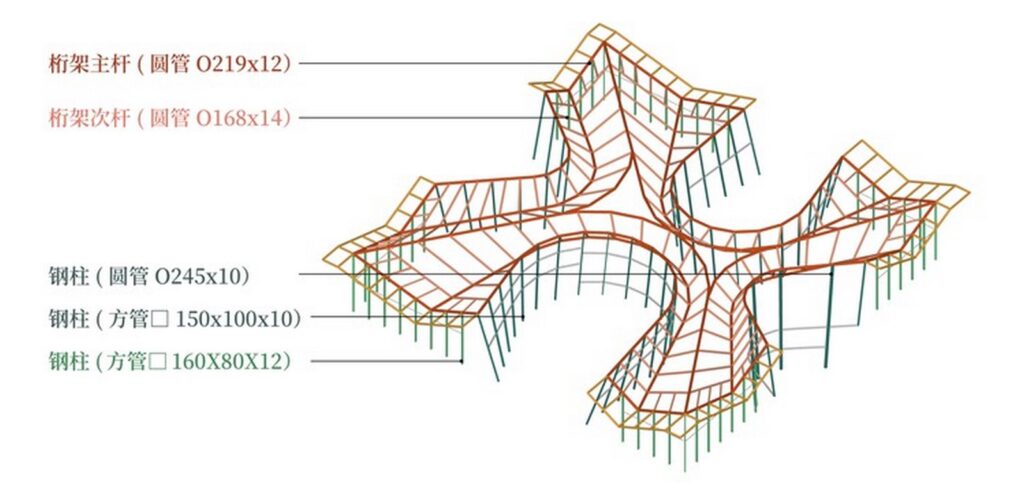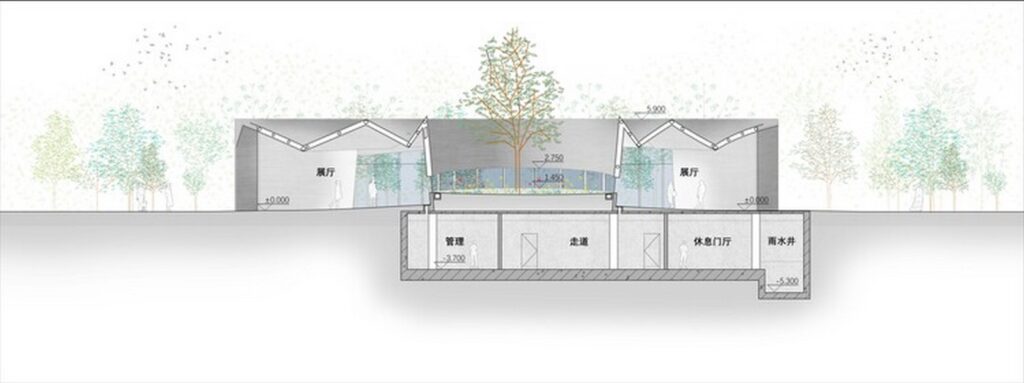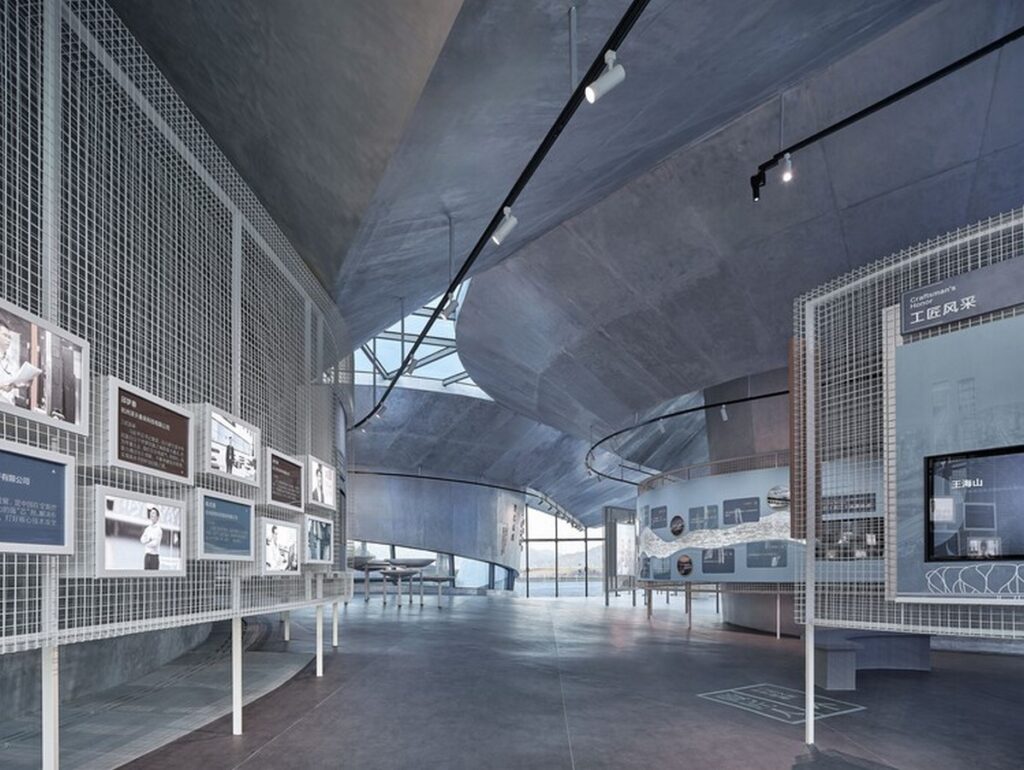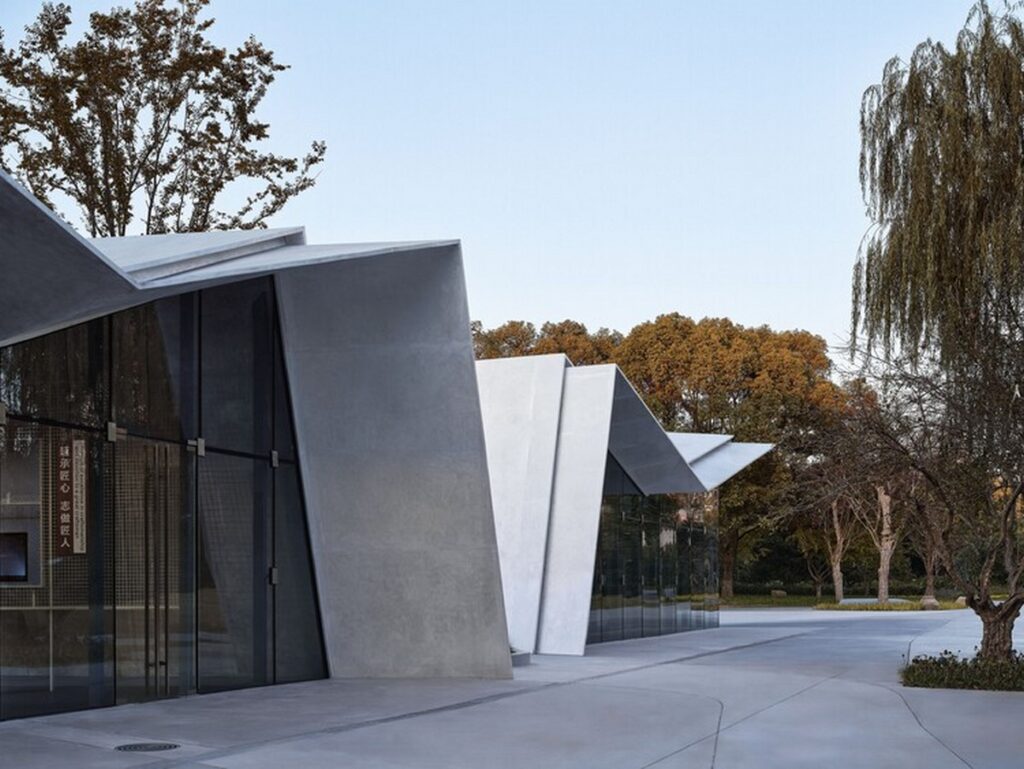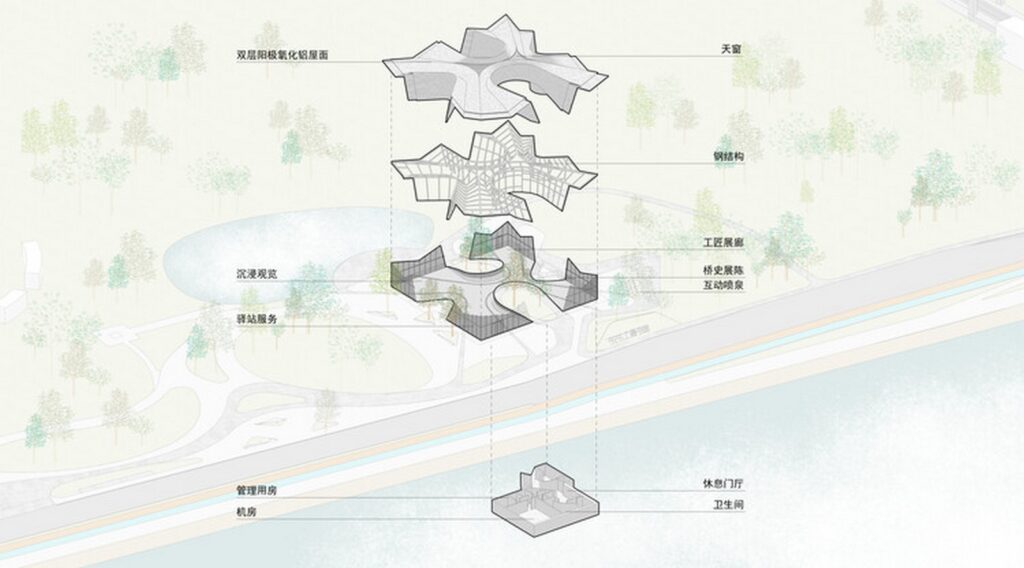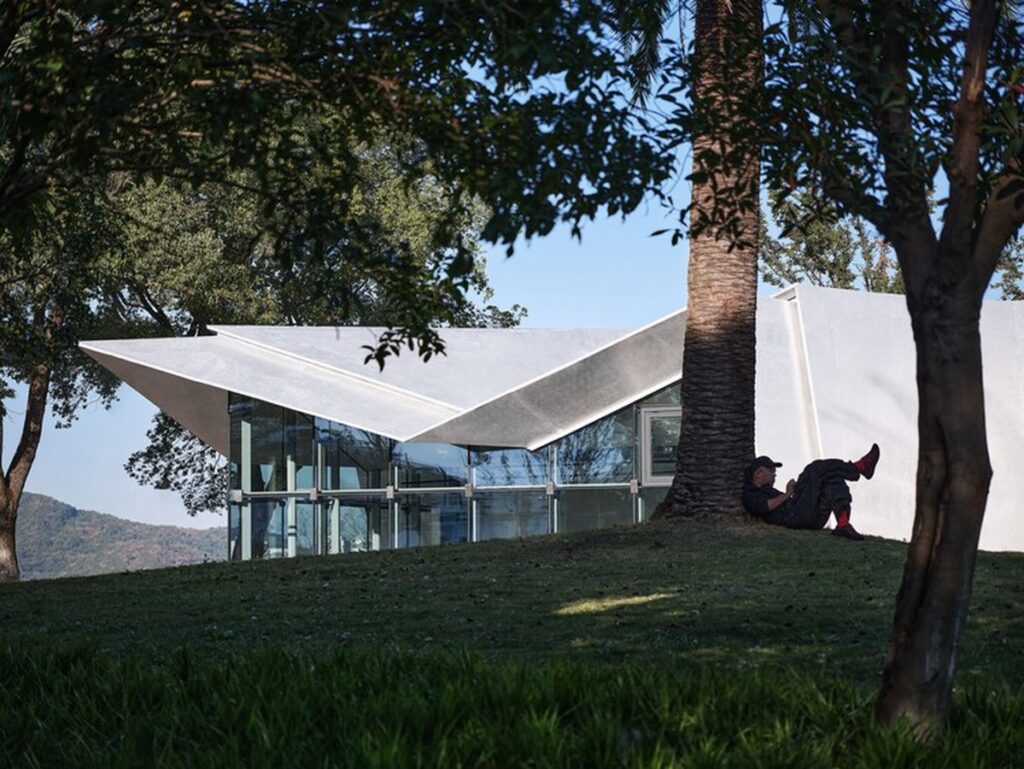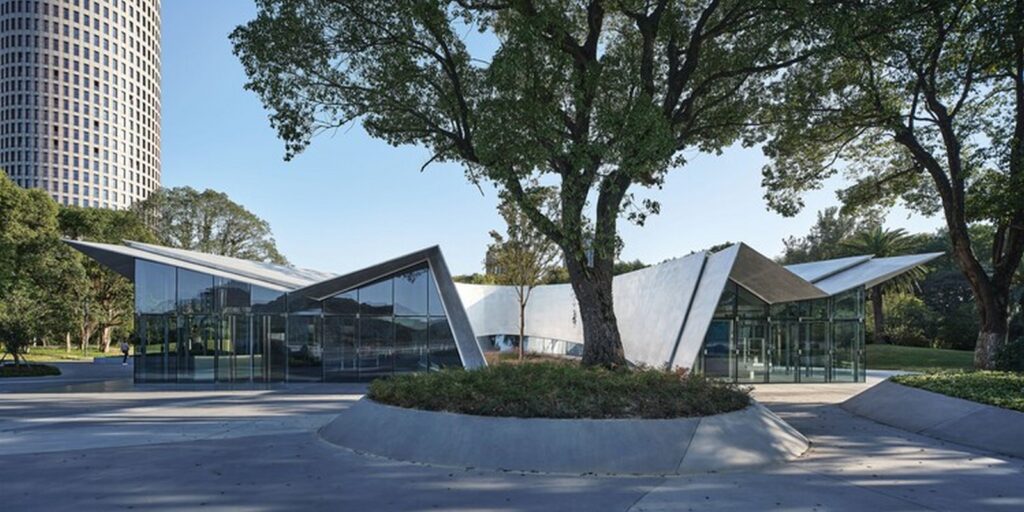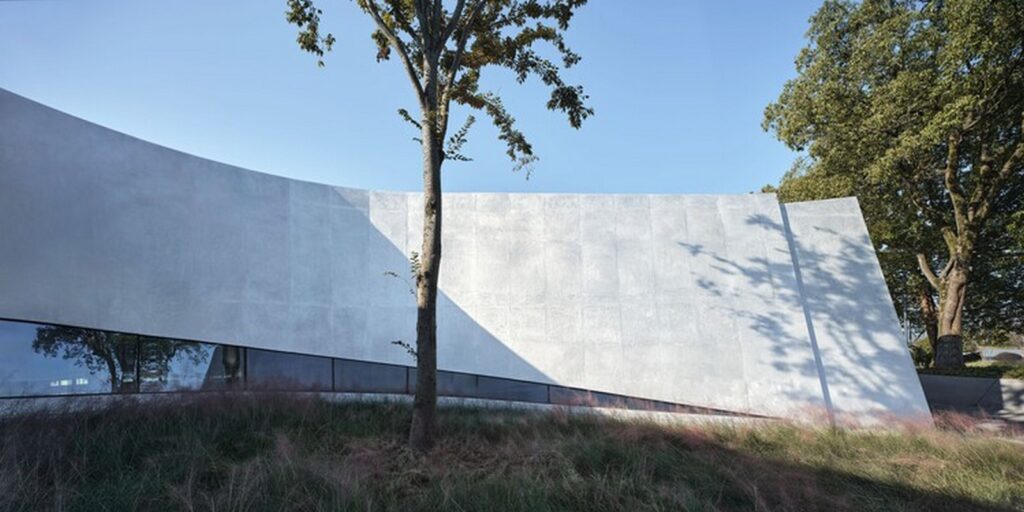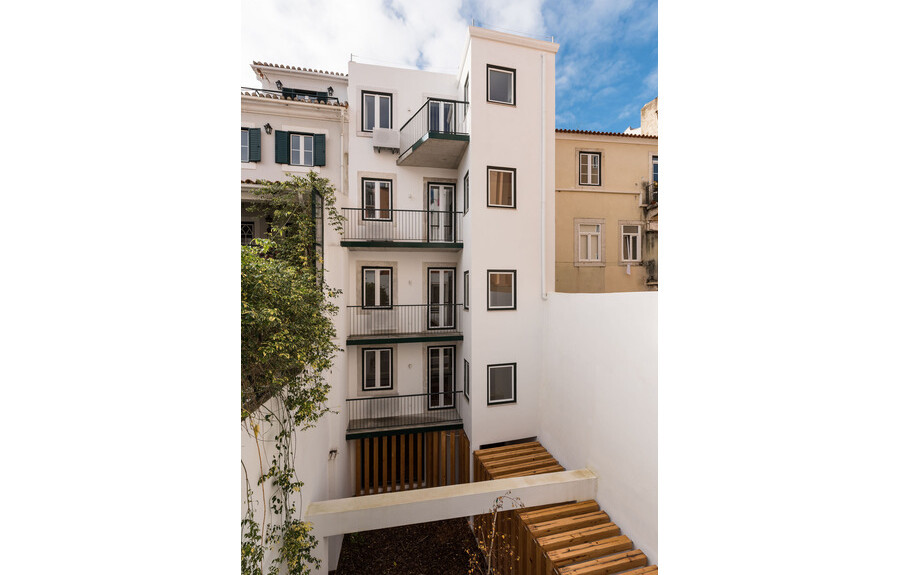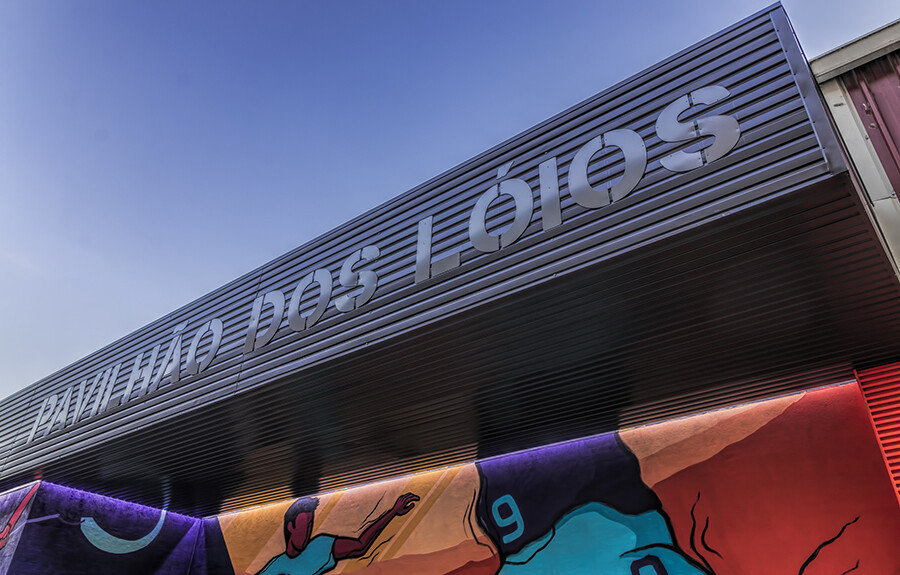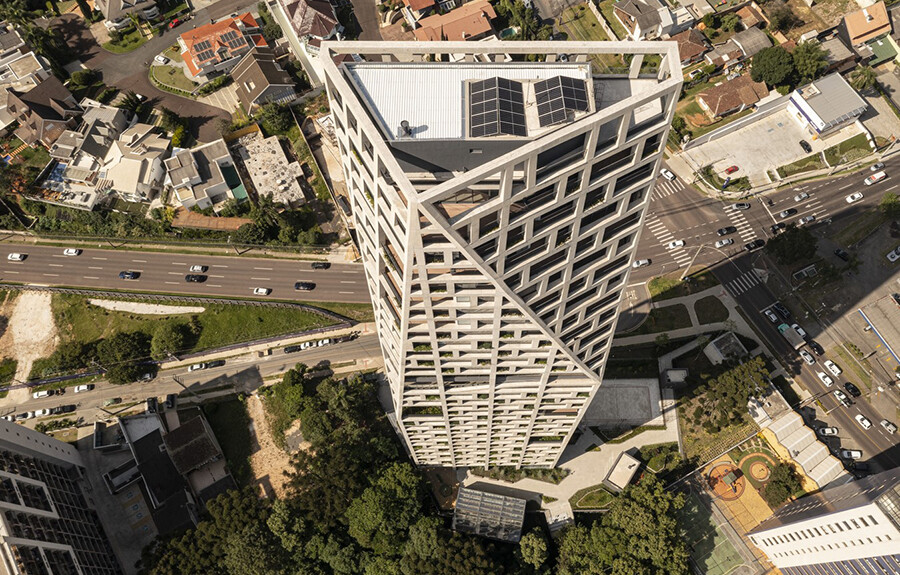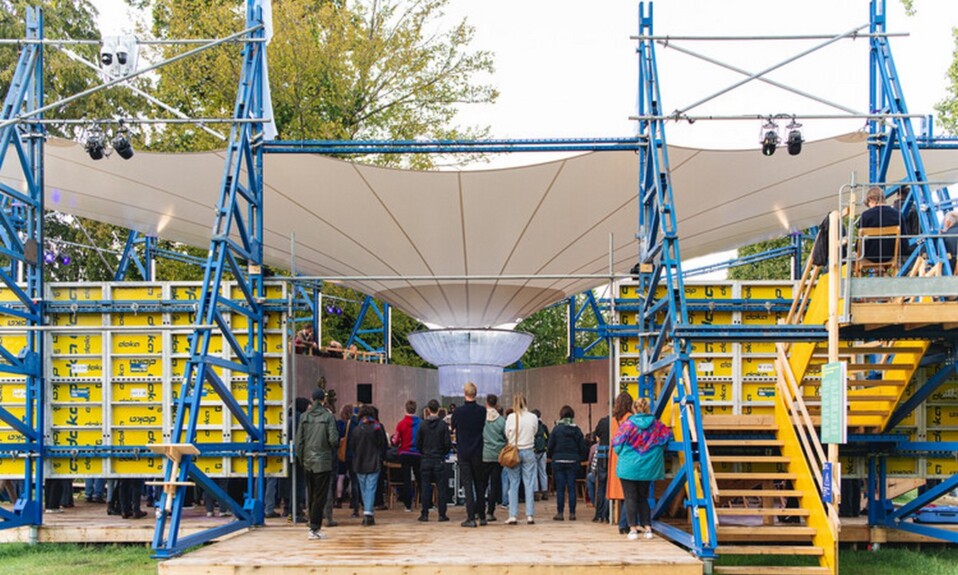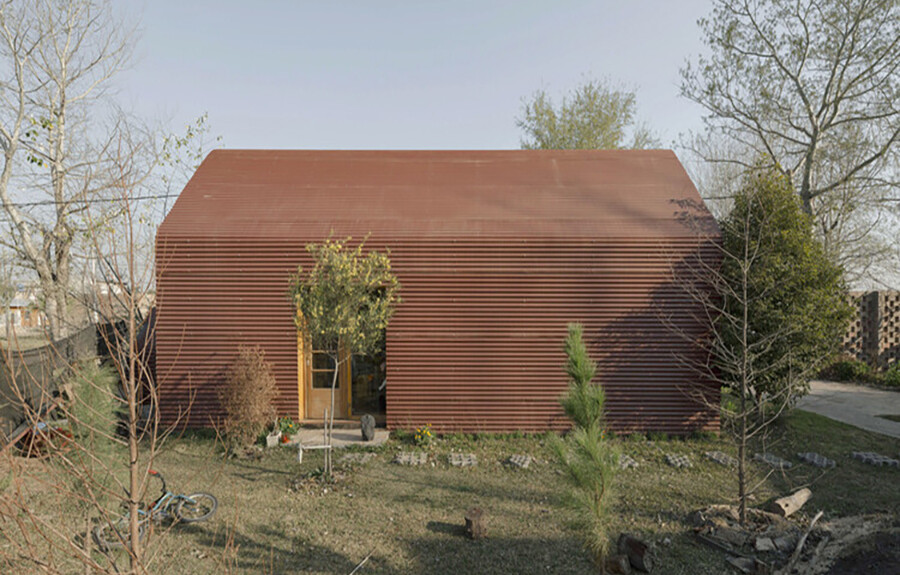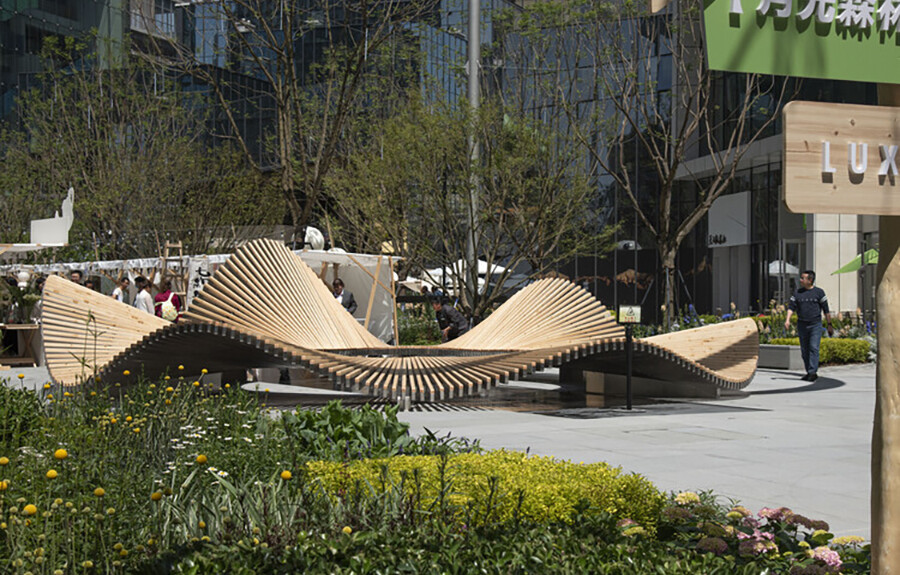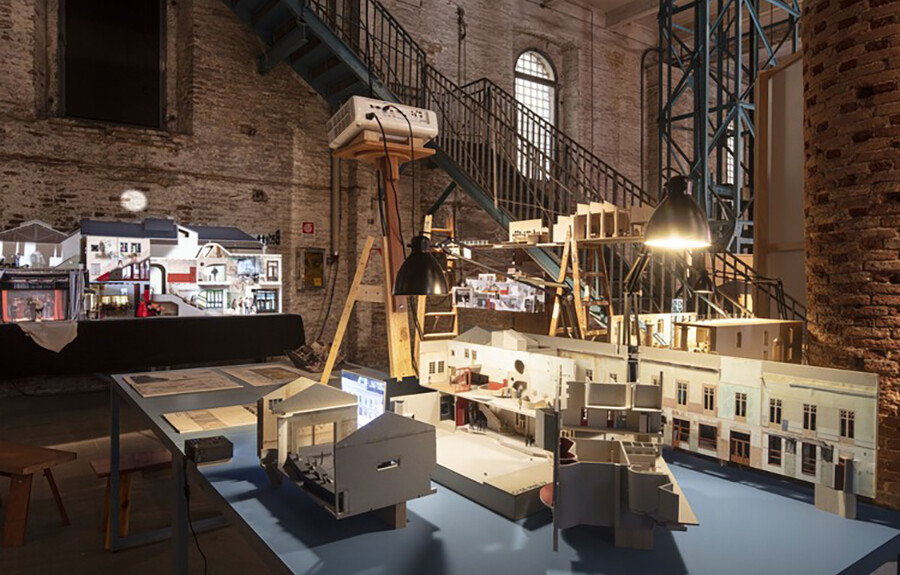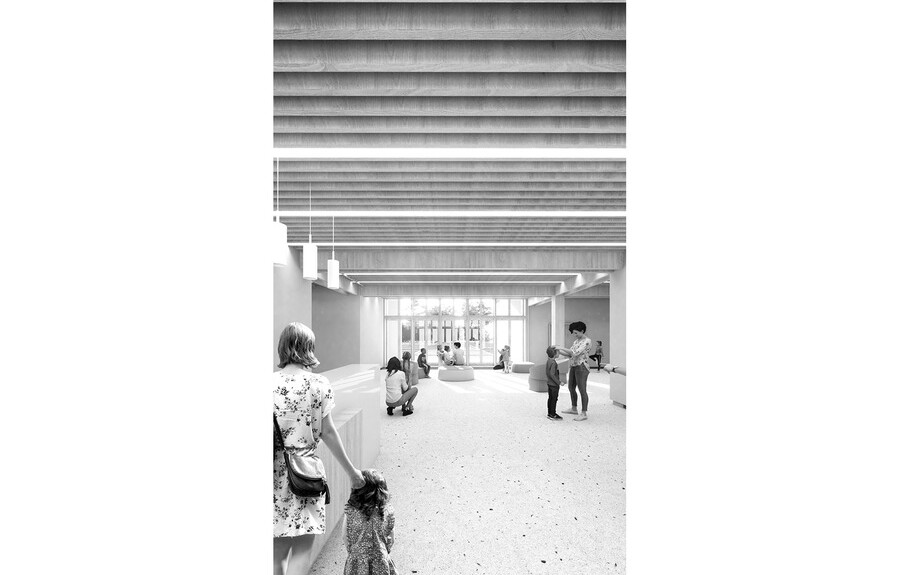
The 926 Craftsman Museum, alongside the 926 Park, stands proudly on the southeast side of the Qiantang River Bridge in Hangzhou, China. Designed by the TJAD Original Design Studio, this architectural marvel pays homage to the rich tradition of craftsmanship in the region.
Location and Significance
Situated adjacent to Wentao Road, overlooking the majestic Qiantang River, the museum and park form an integral part of the Binjiang District’s waterfront public space renovation project. The Qiantang River Bridge, completed in 1937 under the supervision of Mr. Mao Yisheng, marks a significant milestone in Chinese bridge engineering. To commemorate this achievement, September 26th has been designated as “926 Craftsmen’s Day” in Hangzhou, honoring the skilled artisans who contributed to its construction.
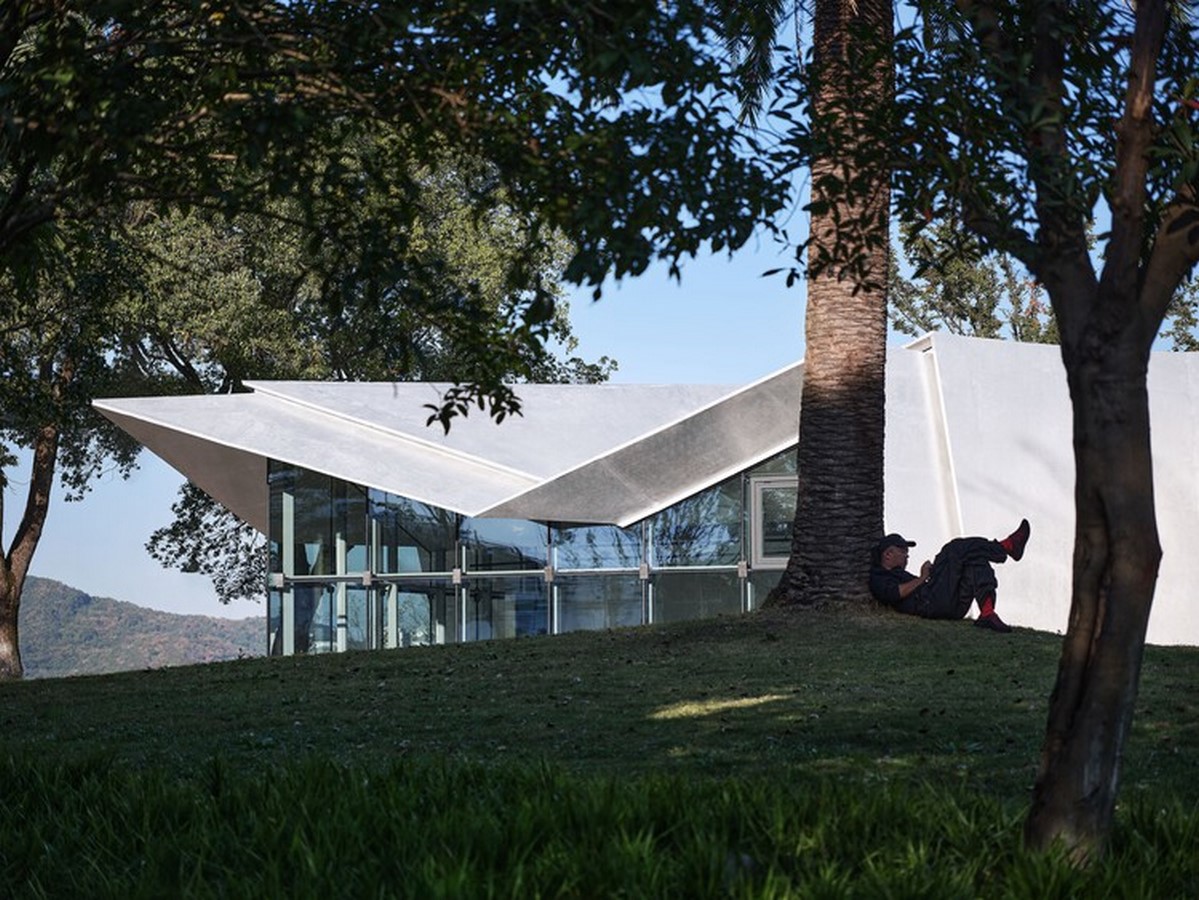
Architectural Design
The museum, occupying the site of an old management building, seamlessly integrates with its surroundings while preserving the natural landscape. Large trees flank the east side of the building, creating a communal square for recreational activities. Guided by the principle of limited intervention, the design aims to enhance the quality of public spaces and celebrate the spirit of craftsmanship.

Modern Interpretation of Tradition
Drawing inspiration from traditional Jiangnan architecture, the museum’s design features a folded roof adorned with the “926” motif, symbolizing the bridge’s completion date. Crafted from double-layered anodized aluminum plates, the roof forms a striking silhouette against the skyline. Beneath its sleek exterior lies a network of service spaces and auxiliary rooms, cleverly concealed underground to optimize the exhibition area.
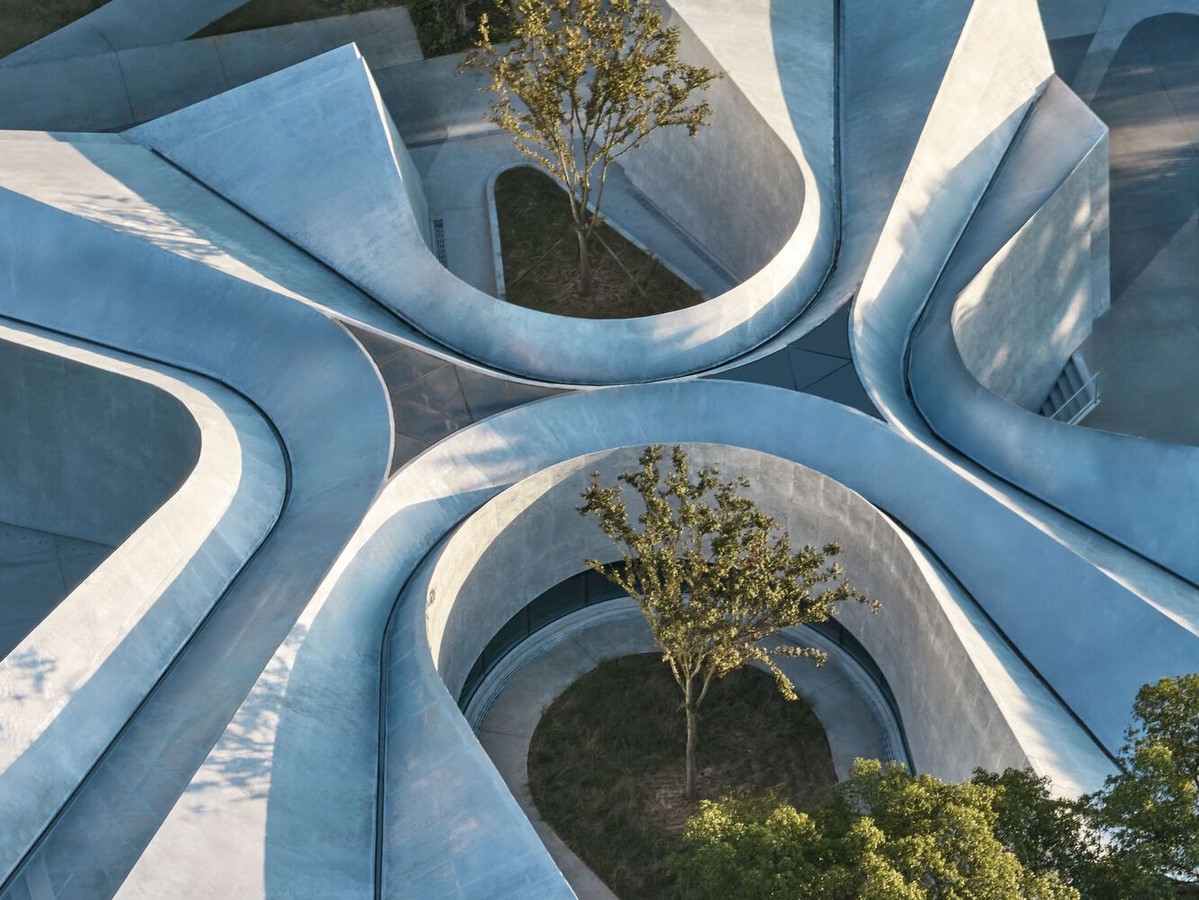
Lightweight Construction and Transparency
With a total area of 1100 square meters, the museum boasts a spacious interior devoid of cumbersome columns, thanks to a steel truss system that supports the expansive roof. Curtain wall columns with minimal cross-sections ensure maximum transparency, allowing natural light to permeate the space. This lightweight structure not only enhances the visual appeal of the building but also reflects the ethos of craftsmanship through its simplicity and efficiency.
Conclusion
The 926 Craftsman Museum stands as a testament to Hangzhou’s rich cultural heritage and innovative spirit. By blending traditional craftsmanship with modern design principles, it not only honors the past but also inspires future generations of artisans and architects. As visitors explore its halls, they are invited on a journey through time—a celebration of ingenuity, creativity, and the enduring legacy of craftsmanship.


